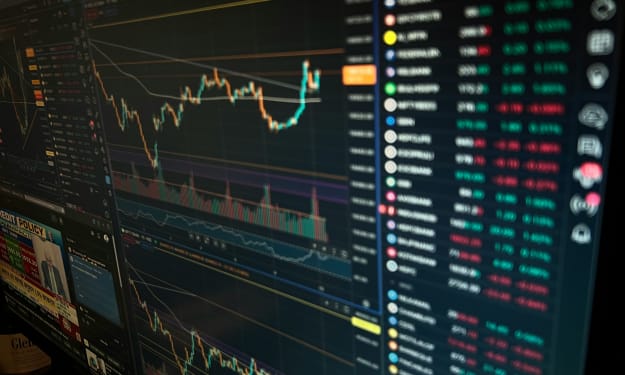Here’s Everything You Need To Know About Commodity Trading In India
The financial market is influenced by the prevailing supply and demand dynamics in the economy. Since these dynamics are always ever-changing, rapid price changes are always around the corner.

The financial market is influenced by the prevailing supply and demand dynamics in the economy. Since these dynamics are always ever-changing, rapid price changes are always around the corner. Investors looking forward to generating the maximum returns on their investments identify high-performing assets/commodities to the best of their knowledge. Based on their investment timeline and risk appetite, some investors prefer equities, and some prefer bonds. With that being said, investors having a higher risk threshold prefer investing in commodities such as MCX Cotton.
More often than not, the prices of commodities like spices, metals, pulses etc. fluctuate. As a thumb-rule of investment, investors tend to buy these commodities when their rates are on the lower side and sell them when their rates are on the higher side. In addition to that, manufacturers look forward to commodity trading as a hedge against price fluctuations and mitigate losses in case of sudden price decline.
In case you want to know more about commodity trading and how you can get into it, let’s delve into the basics of commodity trading and the MCX.
Understanding The Meaning
Commodities can be defined as movable goods used on a daily basis such as fuel, sugar, cotton, pulses, spices, metals like copper, zinc, gold etc. Commodities are raw materials used to make a wide variety of finished products. Hence, commodities are physical/ tangible goods that can be purchased and traded.
Commodities are an asset class that is mainly categorised as movable goods. Since their prices are ever-changing, investors trade them as an asset class to earn profits from the difference between their purchasing price and selling price. Simply put, that’s commodity trading for you.
How Does It Work?
Commodity rates are determined purely by supply and demand. While commodity demand is directly proportional to its rate, its supply is inversely proportional to its rate. The commodity pricing fluctuates due to the factors mentioned below:
· Geopolitical tensions
· Global economy
· Government policies
· Production factors
Let’s understand this with the help of an example- the reduced rainfall in India is bound to impact the cotton supply and hike the global cotton prices during the same year.
Commodities Types
Out of an array of commodities available for trading at various exchanges; here are the highly traded commodities:
· Precious Metals/ Materials: These include Platinum Gold, Silver and Palladium.
· Metals And Materials: These include the following:
a. Bulk Commodities: Coking Coal, Bauxite, Iron Ore, and Steel.
b. Base Metals: Copper (MCX Copper), Aluminium, Nickel, Tin, and Zinc.
c. Others: Rare Earth Metals, Soda Ash, and Chemicals.
· Energy: It covers the following:
a. Natural Gas
b. Crude Oil
c. Brent Crude
d. Alternate Energy
e. Thermal Coal
· Agriculture: It includes the following:
a. Oil And Oil Seeds: Soy Seeds, Castor Seeds, Castor Oil, Soy Meal, Mustard Seeds, Refined Soy Oil, Groundnut Oil, Cottonseed, Crude Palm Oil etc.
b. Pulses: Yellow Peas, Chana, Tur Dal, Urad Dal etc.
c. Spices: Red Chilli, Pepper, Jeera, Cardamom, and Turmeric.
d. Grains: Wheat, Maize, Basmati Rice, and Rice.
· Services: These include the following:
a. Mining Services
b. Oil Services
How To Trade In Commodities?
There are two options for commodity trading:
1. Options Contract: Generally, an Options trading contract is for top commodities wherein the trader has no legal obligation to sell or buy a commodity at a pre-decided rate. In case the current commodities rates are abysmally low, the buyer can let go of the contract to avoid incurring a loss. An Options contract enables investors to make profits on the basis of price fluctuations without having to trade the commodities.
2. Futures Contract: A commodity Futures Contract is basically an agreement between a commodity buyer and a commodity seller. The buyer agrees to buy a specific commodity in a specific quantity at a pre-specified rate and a pre-specified future date. By default, each Futures Contract has an expiration date, and the buyer can end up making a profit/loss on the basis of the current market rate of the commodity.
MCX
Backed by the Government of India, MCX is a commodity exchange which was set up in 2003. It takes pride in being India’s biggest derivatives exchange that enables commodities trading in Futures as well as Options.
You would be surprised to know that in the financial year 2019-20, commodity futures contracts’ volume increased to ₹32,424 crores. It is a rise of approximately 26% compared to the financial year 2018-19 as per IIFL.
The MCX was regulated by the Forward Markets Commission (FMC) till 2015. In 2015, FMC was merged with the Securities and Exchange Board of India (SEBI). As a result, MCX is now regulated by SEBI.
Here are the commodities traded in the MCX:
· Agro Commodities: Crude Palm Oil, Cotton (MCX Cotton), Kapas, Cardamom, Castor Seed, Mentha Oil, RBD Palm Olein, and Black Pepper.
Metal: Aluminium, Copper, Zinc, Nickel, and Lead.
Bullion: Gold, Gold Petal, Gold Mini, Gold Guinea, Gold Global, Silver, Silver 1000, Silver Mini, and Silver Micro.
Energy: Natural Gas, and Crude Oil.
Summing It Up
Commodity trading is shaped by demand and supply dynamics. This dynamic investment landscape is ruled by various factors such as investment timelines and risk tolerance. Tangible goods such as metals, agricultural products etc. and commodities are traded globally. Their prices are largely impacted by geopolitical tensions, government policies, production factors, and the global economy.
Commodity trading is done via futures contracts and options, providing investors with much-needed flexibility. Regulated by SEBI, India's trading platform- the Multi Commodity Exchange (MCX), facilitates diverse commodities trading.
About the Creator
Suyash Siddharth
Suyashh Siddharth is an Indian from Delhi.






Comments
There are no comments for this story
Be the first to respond and start the conversation.